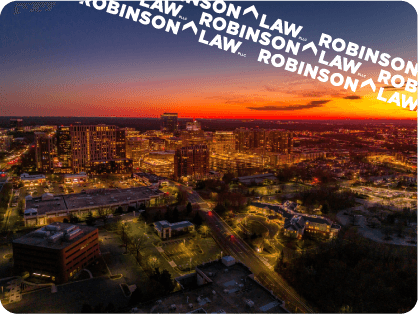Court Discusses Whether a Minor Can Consent to Being Filmed in the Nude in Recent Virginia Obscenity Case | Robinson Law, PLLC
Recently, a state appellate court issued a written opinion in a Virginia obscenity case involving a defendant who allegedly videotaped an eight-year-old girl while she was changing. The case required the court to determine whether the defendant violated the law by filming the young girl without her knowing, meaning she neither provided consent nor told the defendant that he did not have consent.
The Facts of the Case
According to the court’s opinion, the defendant was dating a woman who had an eight-year-old daughter from another relationship. One day, the woman was looking through the defendant’s phone and found two videos of her daughter in various states of undress. From how the camera was positioned, it appeared that the video was taken from under the girl’s bedroom door. The woman obtained a copy of the videos and eventually contacted the police.
The defendant was charged with filming a non-consenting minor under Virginia Code § 18.2-386.1(A). After the prosecution’s presentation of the evidence, the defendant moved to strike the indictment, arguing that the evidence was insufficient. Essentially, the defendant claimed that he could not be found guilty because the girl never told him that he did not have permission to film her. The court rejected the defendant’s claim, stating that no minor “can consent to anything.” The defendant was subsequently convicted.
On appeal, the defendant argued that the trial court’s interpretation of the statute was wrong. The defendant renewed his claim that, because he was not specifically told he could not film the girl, he did not violate the language of the statute.
The court agreed with the defendant, in part, but affirmed his conviction. The court explained that the lower court’s ruling was overbroad, in that, under the plain meaning of the statute, minors must be able to consent in some situations. The court explained that lawmakers included the term “nonconsenting” before the word “minor.” If the lower court’s interpretation were correct, there would be no need for the addition of the word “nonconsenting.”
However, the court then moved on to review the defendants’ claim. The court found that the word “nonconsenting” applies to any minor who does not give their consent to be filmed; not just to those who make it explicitly clear that they do not want to be filmed.
In other words, under the terms of § 18.2-386.1(A), a defendant who records a minor without permission is in the same position as a defendant who records a minor after being affirmatively told not to do so. The court explained that this interpretation gives the full text of the statute meaning and is the only logical interpretation.
Have You Been Arrested for a Virginia Crime Against a Minor?
If you are facing allegations that you committed a crime against a minor, contact the Virginia criminal defense lawyers at Robinson Law, PLLC. Our aggressive team of defense lawyers has extensive experience handling a wide range of criminal matters across the state, including Virginia sex crimes, drug offenses, domestic violence allegations, and more. We offer all clients a free consultation to discuss their cases and how we can help. To learn more, give us a call at 703-542-3616 to schedule a free consultation today.












